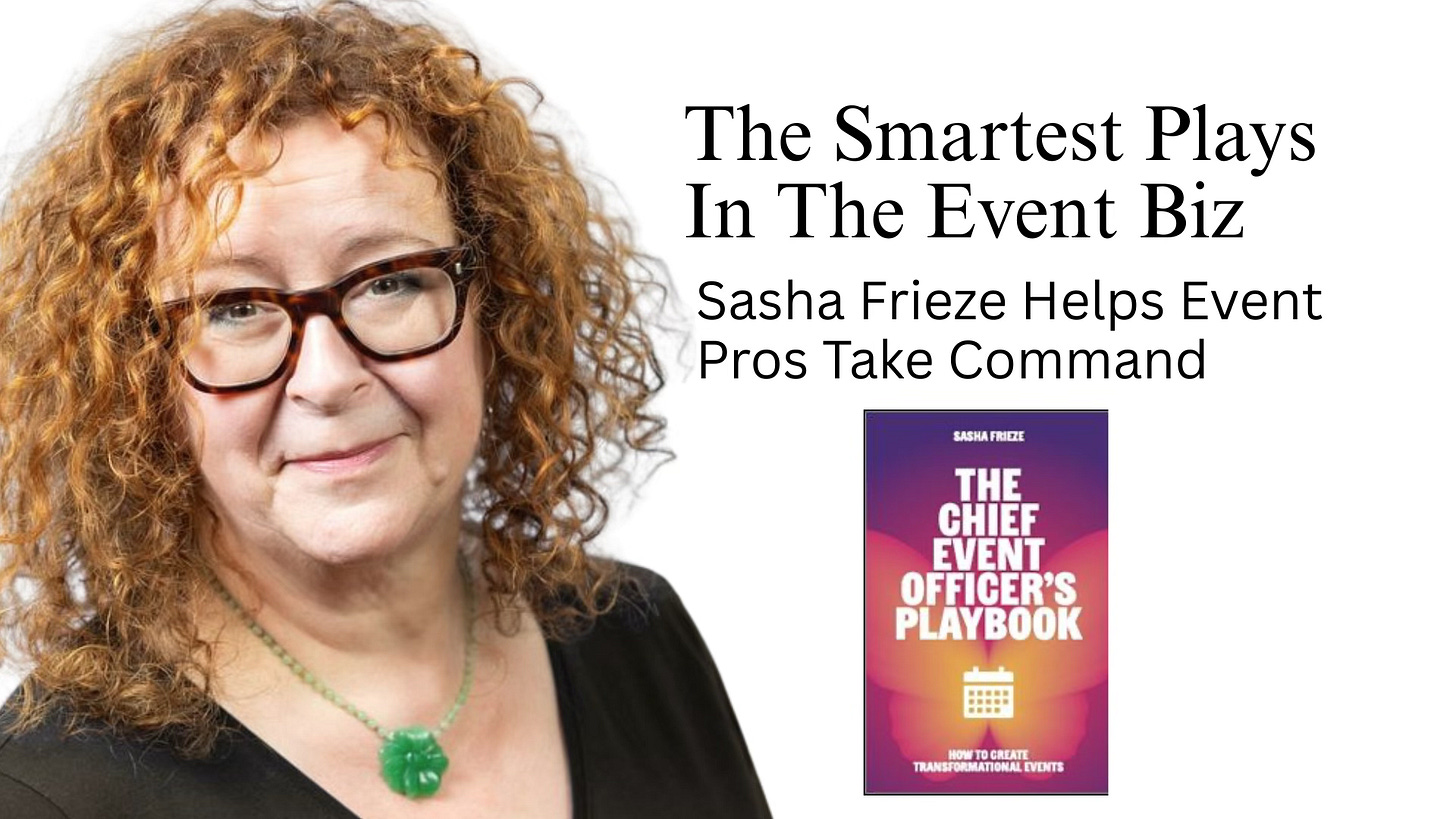Events Are Being Rewritten—And You’re Probably Still Running the Old Playbook
In Her New Book, Sasha Frieze—the Wise UK Strategy Guru Rewrites What Event Leadership Really Means
Before she wrote the playbook, she lived inside the room.
Not a boardroom. Not a ballroom. A purple seventies living room in northern England, anchored by a Saarinen x Knoll Tulip table and a mother who filled it with musicians, neighbours, and strong opinions over weak tea. Her family believed in service without spectacle—organizing meals, coordinating …




